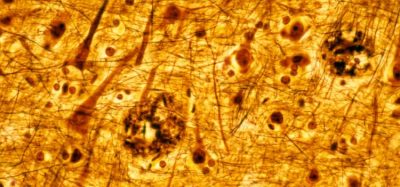Polyphor launches the development of an inhaled antibiotic murepavadin
Posted: 12 October 2017 | Dr Zara Kassam (European Pharmaceutical Review) | No comments yet
Polyphor Ltd has announced €5m funding, in order to support and accelerate the development of an inhaled dosage form of murepavadin…


Polyphor Ltd has announced the development of an inhaled dosage form of its breakthrough antibiotic Murepavadin.
In order to support and accelerate the development, Polyphor will leverage a European program dedicated to the development of inhaled antibiotics, iABC – a consortium of leading lung specialists in 18 hospitals and research institutions in eight European countries. These institutions will receive up to EUR 5 million funding for this project from the Innovative Medicines Initiative (IMI), a public-private partnership of European Federation of Pharmaceutical Industries and Associations (EFPIA) and the EU, while Polyphor will invest up to EUR 5 million.
Respiratory infections, especially those caused by drug-resistant bacteria, are the main cause of disease and death in people with cystic fibrosis and bronchiectasis. Thanks to inhaled antibiotics, patients now live longer than ever before and enjoy a better quality of life. However, additional treatment options are needed to reduce the bacterial load and fight resistant pathogens – and especially resistant Pseudomonasstrains.
The iABC project is a Europe-wide program funded by the IMI to develop new, life-saving antibiotic treatments to manage chronic lung infection. The two industry partners are Polyphor and Novartis.
Murepavadin (POL7080) is the first representative of the Outer Membrane Protein Targeting Antibiotics (OMPTA), a class of antibiotics against Gram-negative bacteria with a novel mode of action discovered by Polyphor. It is a precision antibiotic specifically targeting Pseudomonas aeruginosa, one of the most difficult to treat pathogens, and is highly potent and active also against multi-drug resistant strains.
Pivotal studies of Murepavadin’s intravenous formulation will be initiated in the first months of 2018 for the treatment of patients with nosocomial pneumonia (Ventilator-associated and hospital-acquired pneumonia; VAP/HAP) caused by Pseudomonas aeruginosa, including its resistant strains.
Our work has the potential to deliver new inhaled antibiotics that will improve the quality of life and survival of patients with cystic fibrosis and bronchiectasis.
The inhaled formulation of Murepavadin could extend the therapy to the treatment of chronic infections by Pseudomonas aeruginosa– affecting for example over 60% of the adult patients with cystic fibrosis and many of those with non-CF bronchiectasis and other rare lung diseases.
Professor Stuart Elborn, Professor of respiratory medicine at the Royal Brompton Hospital in London and Principal Investigator, said: “Just a few decades ago, most cystic fibrosis patients died in early childhood. Thanks to antibiotics, patients born today can expect to reach early middle age. However, this progress is threatened by the fact that current medicines do not fully eradicate the infections.” He continued: “The iABC project represents an important contribution to efforts to counter this threat. Our work has the potential to deliver new inhaled antibiotics that will improve the quality of life and survival of patients with cystic fibrosis and bronchiectasis by reducing the number of lung infections, improving lung function, and overcoming antibacterial resistance.”
Our investigational antibiotic reaches high concentration in the lung and shows a high efficacy against Pseudomonas aeruginosa.
Giacomo Di Nepi, Chief Executive Officer of Polyphor, said: “Cystic fibrosis and bronchiectasis patients are a vulnerable group. They are at particular risk of chronic infection. We are pleased and honoured to be selected as one of two industry partners of the iABC consortium to develop an inhaled formulation of Murepavadin as a new treatment option. Our investigational antibiotic reaches a high concentration in the lung and shows a high efficacy against Pseudomonas aeruginosa, the main cause of chronic lung infections in cystic fibrosis, affecting the majority of patients. In addition, by targeting only Pseudomonas aeruginosa, Murepavadin does not induce further resistance in other pathogens, which could infect these patients. Murepavadin may, therefore, provide a new important treatment option for patients with cystic fibrosis and bronchiectasis.”
Murepavadin (POL7080) is the first representative of the Outer Membrane Protein Targeting Antibiotics (OMPTA) class, a class of antibiotics against Gram-negative bacteria with a novel mode of action discovered by Polyphor. Murepavadin is highly potent and unlikely to negatively impact the patient’s native bacterial flora. No cross-resistance with a current standard of care antibiotics has been observed.
Earlier this summer, Polyphor received positive guidance from the US Food and Drug Administration (FDA) and the European Medicines Agency for phase III development of Murepavadin for the treatment of patients with nosocomial pneumonia (ventilator-associated and hospital-acquired pneumonia; VAP/HAP) caused by infections through Pseudomonas aeruginosa, including its resistant strains. The Company is currently finalizing the study protocol in collaboration with its investigators and is initiating the pivotal development program. First patient enrolling is expected by Q1/2018.
In addition, the FDA has granted the QIDP (Qualified Infectious Disease Product) status to Murepavadin, which makes the compound eligible for priority review and statutory exclusivity for an additional five years upon approval. Such status is exclusively reserved for breakthrough medicines in life-threatening indications. Polyphor also develops other members of this new class of antibiotics which show excellent activity towards a broad range of Gram-negative pathogens, including isolates resistant to all other antibiotic classes.
Related topics
Antibiotics, Drug Delivery Systems, Drug Development, Funding









